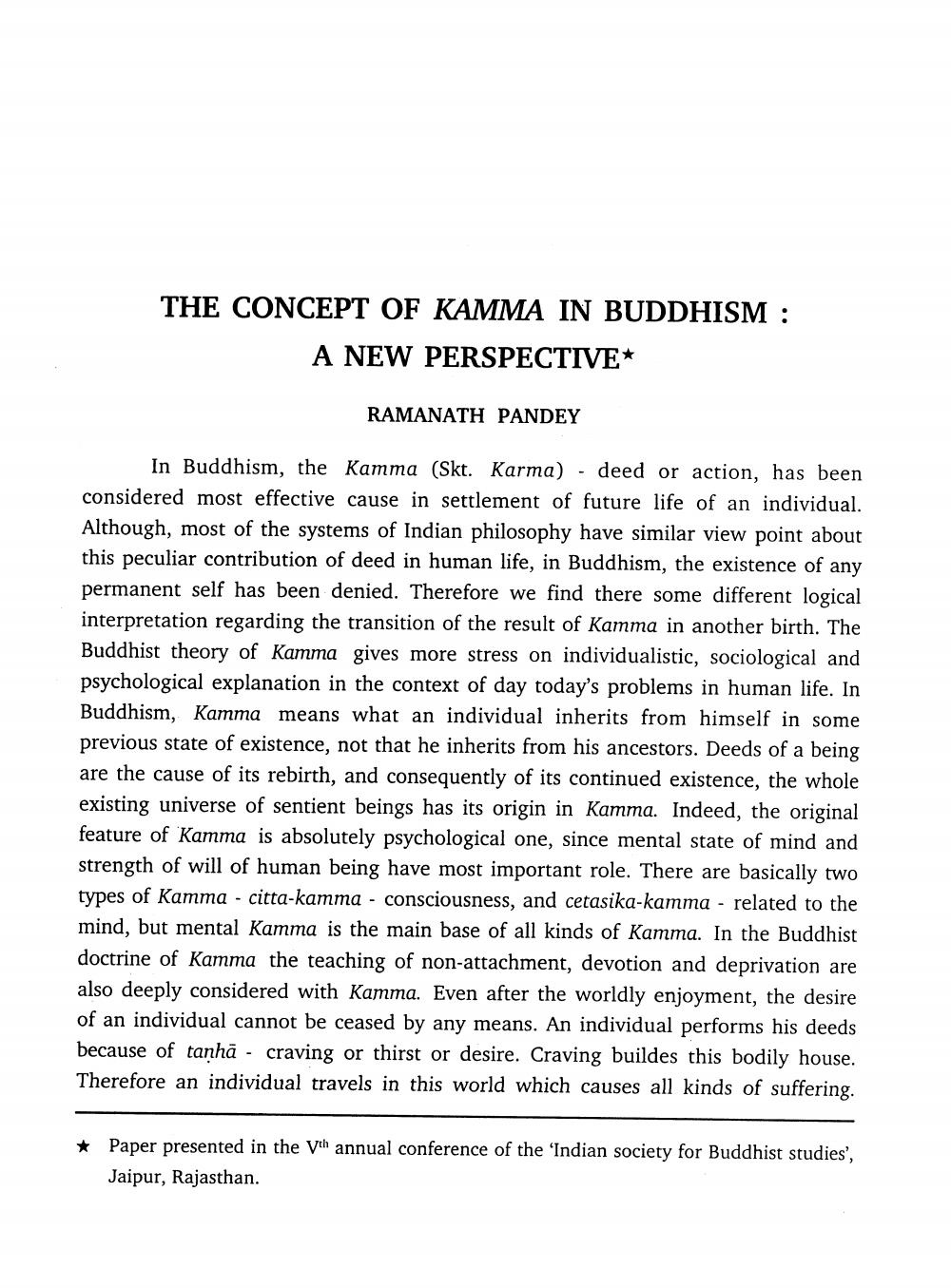________________
THE CONCEPT OF KAMMA IN BUDDHISM :
A NEW PERSPECTIVE*
RAMANATH PANDEY
In Buddhism, the Kamma (Skt. Karma) - deed or action, has been considered most effective cause in settlement of future life of an individual. Although, most of the systems of Indian philosophy have similar view point about this peculiar contribution of deed in human life, in Buddhism, the existence of any permanent self has been denied. Therefore we find there some different logical interpretation regarding the transition of the result of Kamma in another birth. The Buddhist theory of Kamma gives more stress on individualistic, sociological and psychological explanation in the context of day today's problems in human life. In Buddhism, Kamma means what an individual inherits from himself in some previous state of existence, not that he inherits from his ancestors. Deeds of a being are the cause of its rebirth, and consequently of its continued existence, the whole existing universe of sentient beings has its origin in Kamma. Indeed, the original feature of Kamma is absolutely psychological one, since mental state of mind and strength of will of human being have most important role. There are basically two types of Kamma - citta-kamma - consciousness, and cetasika-kamma - related to the mind, but mental Kamma is the main base of all kinds of Kamma. In the Buddhist doctrine of Kamma the teaching of non-attachment, devotion and deprivation are also deeply considered with Kamma. Even after the worldly enjoyment, the desire of an individual cannot be ceased by any means. An individual performs his deeds because of tanhã - craving or thirst or desire. Craving buildes this bodily house. Therefore an individual travels in this world which causes all kinds of suffering.
*
Paper presented in the Vth annual conference of the 'Indian society for Buddhist studies', Jaipur, Rajasthan.




